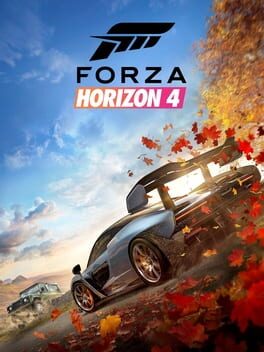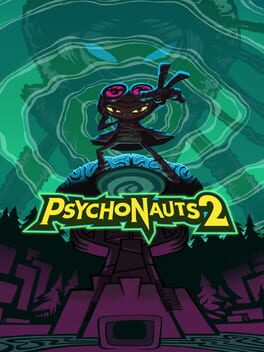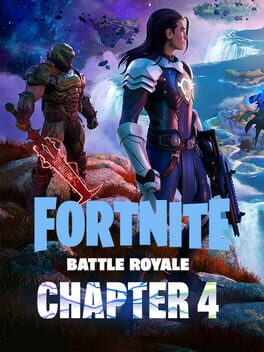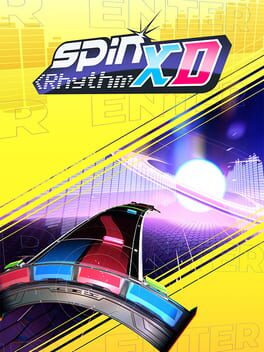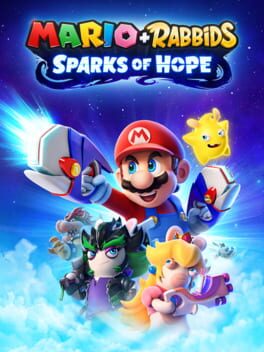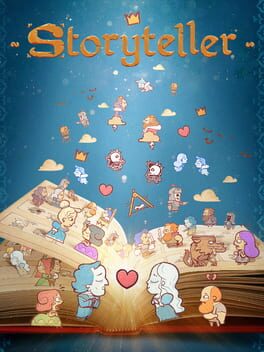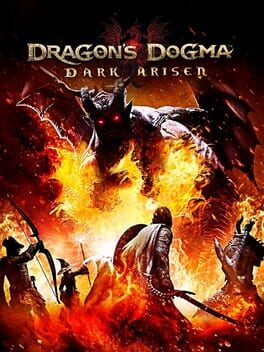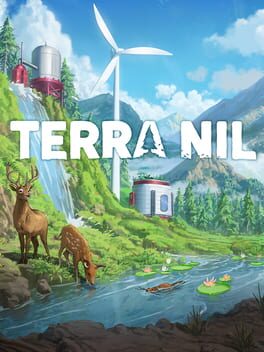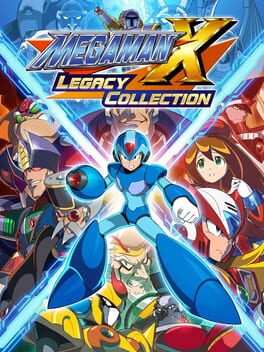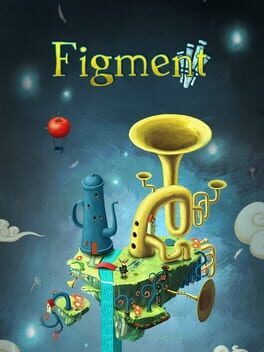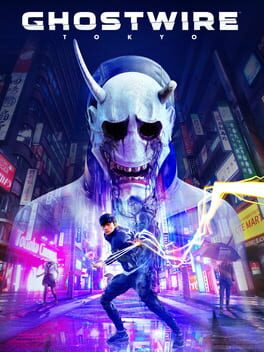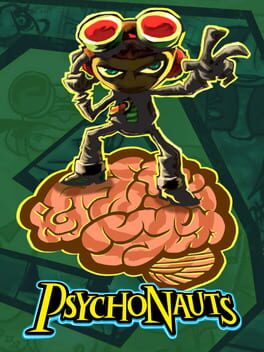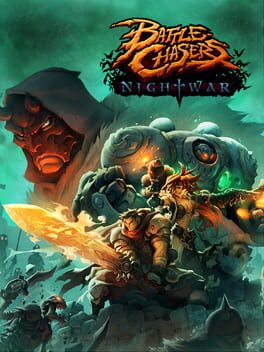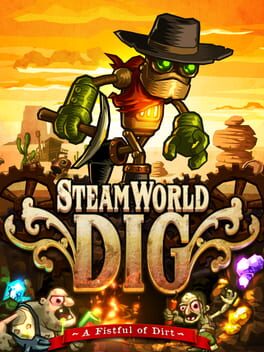HGRezende
2018
You just turned on this game and you are thrown into the best video game intro of all time, an intro that absolutely sets the tone: amazing, high action racing with wild stuff all around, this is the Horizon Festival.
The intro presents what is probably the best new feature, the seasons, and gives you a taste of road and dirt racing, and you can already feel how good it is to actually play, it really encapsulates the game, a game that also delivers on all the hype the intro creates.
I'm writing this after already playing Forza Horizon 5, so I feel it would be unfair to write all the stuff that is better in the sequel, I just want to highlight how it is even today a very fun game that stands on its own.
The intro presents what is probably the best new feature, the seasons, and gives you a taste of road and dirt racing, and you can already feel how good it is to actually play, it really encapsulates the game, a game that also delivers on all the hype the intro creates.
I'm writing this after already playing Forza Horizon 5, so I feel it would be unfair to write all the stuff that is better in the sequel, I just want to highlight how it is even today a very fun game that stands on its own.
2021
Psychonauts 2 follows the adventure and platforming mix of the first game, but while in the first I consider the adventure roots stronger, in the new entry I'd say the platforming is a lot more robust and the adventure portion is brought back in the strong narrative and less in the gameplay.
Basically everything in your moveset is better this time around and the levels have a much more fluid pacing even with a lot of narrative going on. You can notice how they wanted to interrupt you less when even the emotional baggage animation was reduced for the sequel.
And even though it feels like the game interrupts you less, the narrative is still such a strong part of this experience, that I think playing the first game is a must to fully enjoy what is happening here. Also, I love how they kept the clairvoyance skill showing how people see you, because it is one of my favorite "hidden storytelling" points.
After so many years it is easy to imagine expectations for a sequel are insurmountable, but with levels that are a joy to play and a narrative that weaves such a big number of threads, Psychonauts 2 delivers a masterpiece that absolutely stuck the landing.
Basically everything in your moveset is better this time around and the levels have a much more fluid pacing even with a lot of narrative going on. You can notice how they wanted to interrupt you less when even the emotional baggage animation was reduced for the sequel.
And even though it feels like the game interrupts you less, the narrative is still such a strong part of this experience, that I think playing the first game is a must to fully enjoy what is happening here. Also, I love how they kept the clairvoyance skill showing how people see you, because it is one of my favorite "hidden storytelling" points.
After so many years it is easy to imagine expectations for a sequel are insurmountable, but with levels that are a joy to play and a narrative that weaves such a big number of threads, Psychonauts 2 delivers a masterpiece that absolutely stuck the landing.
2022
After thinking the Chapter 3 map was very lackluster, I'm glad this new Chapter started sooner. The map felt immediately more interesting and it can only get better in future seasons.
Augments are actually fun, and Slap Juice is a great addition too, I also love the Ex-Caliber. I drifted mid season but I think not many were pleased with Hammer, Deku Smash and other items being very powerful or broken, but otherwise I had a lot of fun and Doom Slayer is a great skin.
Augments are actually fun, and Slap Juice is a great addition too, I also love the Ex-Caliber. I drifted mid season but I think not many were pleased with Hammer, Deku Smash and other items being very powerful or broken, but otherwise I had a lot of fun and Doom Slayer is a great skin.
2019
Ever since early access one of the main points that sold me on Spin Rhythm is that motions add so much feeling to playing a song. When you are in the zone and everything flows, you feel the buttons, the slides, the spins, it is just fun.
While playing the songs with a controller always felt good for me, even after the 1.0 release and a brand new UI there are still some rough edges for actually navigating the menus, but it is much more friendly and should be mostly good after a few patches.
Personally, I think the tracklist could be better, but really everyone will have different opinions about this. What really is reflected in my score is how good I feel like this translates the music to movement and gameplay, a very unique and solid take on rhythm games.
While playing the songs with a controller always felt good for me, even after the 1.0 release and a brand new UI there are still some rough edges for actually navigating the menus, but it is much more friendly and should be mostly good after a few patches.
Personally, I think the tracklist could be better, but really everyone will have different opinions about this. What really is reflected in my score is how good I feel like this translates the music to movement and gameplay, a very unique and solid take on rhythm games.
I've played up to the start of the third world but I just don't care anymore. I feel like this game suffered in a way similar to Paper Mario games that lost identity and had many gameplay elements changed with mixed results.
In general encounters are not as great as in the first game, random encounters are absolutely unnecessary and it feels that by introducing such a broad range of playable caracters the encounters never truly push you too much. Maybe I should play on higher difficulties, but something else that bothers me is that HP and damage numbers already feel so inflated, it doesn't feel like you are getting more powerful, and the level scaling also makes it unrewarding.
I might return for a shorter and more concise experience with the Rayman DLC, but the main game just did not grab me nearly as much as the first.
In general encounters are not as great as in the first game, random encounters are absolutely unnecessary and it feels that by introducing such a broad range of playable caracters the encounters never truly push you too much. Maybe I should play on higher difficulties, but something else that bothers me is that HP and damage numbers already feel so inflated, it doesn't feel like you are getting more powerful, and the level scaling also makes it unrewarding.
I might return for a shorter and more concise experience with the Rayman DLC, but the main game just did not grab me nearly as much as the first.
2023
Storyteller is a fun concept that is at its best when it tries to challenge the most common logic, but it does it far too rarely and doesn't incentivize much experimentation.
At first look most stories are simple and you have to do some basic stuff to get it to happen, the animations and reactions from the characters are cute and interesting, but as I said it is better when the unexpected happens, I will avoid spoilers but some interactions are really funny.
While playing normally you'll stumble upon one or other funny scene, but the achievements on Steam are something that should have been integrated more with the game, weird situations like that are fun to see but you'll never glimpse that if you just complete the book and bonus titles. It is a nice playground, but there is little push or freedom to make you explore more crazy narratives.
At first look most stories are simple and you have to do some basic stuff to get it to happen, the animations and reactions from the characters are cute and interesting, but as I said it is better when the unexpected happens, I will avoid spoilers but some interactions are really funny.
While playing normally you'll stumble upon one or other funny scene, but the achievements on Steam are something that should have been integrated more with the game, weird situations like that are fun to see but you'll never glimpse that if you just complete the book and bonus titles. It is a nice playground, but there is little push or freedom to make you explore more crazy narratives.
After struggling with technical difficulties and just not vibing with some of the games systems, I've decided to just let it rest.
I'll say that the pawn system does seem interesting and it is quite unique even after all these years, the idea of hiring helpers from your friends and tailoring your own sounds a lot of fun.
And as for what I didn't like, it is mostly the old and janky stuff. The menus and inventory management are a mess, encumbrance should just be eliminated from all games and then the items being spread among the pawns is also just more busy work to organize.
I can see all the potential here for the upcoming sequel, so I guess I'll just wait for that.
I'll say that the pawn system does seem interesting and it is quite unique even after all these years, the idea of hiring helpers from your friends and tailoring your own sounds a lot of fun.
And as for what I didn't like, it is mostly the old and janky stuff. The menus and inventory management are a mess, encumbrance should just be eliminated from all games and then the items being spread among the pawns is also just more busy work to organize.
I can see all the potential here for the upcoming sequel, so I guess I'll just wait for that.
2023
Terra Nil offers a very distinct feeling than other strategy/builders games. It combines the chill aspect of restoring desolate landscapes with resource management and strategic decisions leading up to the clean up phase at the end. It is very satisfying to see your drone fly off and leave the perfectly peaceful landscape you restored.
I did feel somewhat conflicted when choosing the difficult options though, I feel like the strategy adds a lot, but I also think playing it on easy might add freedom to be more creatively expressive with how you want the land to look at the end.
There is also an in-game book that serves as both manual and encyclopedia and the artwork in there is amazing, do spare a moment to check it all out, there are some gorgeous diagrams of buildings and more details.
Just the premise had me hooked, and they pulled off the concept very well. Even if I do echo the sentiment that it feels a bit short, it is still a very rewarding experience and a chill moment worth delving into.
I did feel somewhat conflicted when choosing the difficult options though, I feel like the strategy adds a lot, but I also think playing it on easy might add freedom to be more creatively expressive with how you want the land to look at the end.
There is also an in-game book that serves as both manual and encyclopedia and the artwork in there is amazing, do spare a moment to check it all out, there are some gorgeous diagrams of buildings and more details.
Just the premise had me hooked, and they pulled off the concept very well. Even if I do echo the sentiment that it feels a bit short, it is still a very rewarding experience and a chill moment worth delving into.
I was playing some Mega Man inspired indie games so I decided to check out an actual Mega Man game, a friend recommended X4 so I picked up the collection and obviously disregarded my friend's advice and started with Mega Man X.
The game did feel a bit old for me, I think I would have enjoyed the help of a save state system, I reached Sigma but couldn't beat it, so I decided to actually try X4 and I realized why my friend recommended that.
I really enjoyed playing through X4, some more modern design choices, the air dash and other touches were definitely something I appreciated. After that I returned to X and somehow beat Sigma. Started X2 but it did feel a bit frustrating so I'm leaving X2 and X3 to maybe play in the future.
As for the Collection features I think the filters are not particularly good, and I really wish they had save states (or that Rookie Hunter didn't lock you out of certain achievements). The collection of artwork is extensive, and there are some curious photos of merchandise too which are cool. The emulation is accurate so you'll get slowdowns when those happened on original hardware, I'm not sure if they could have changed that, but it is there.
Overall I'm not super impressed with the added features of the collection and as someone without prior experience with the games, the lack of nostalgia certainly paints it in a different light. I enjoyed X4, but in the end I didn't get out of this loving the franchise.
The game did feel a bit old for me, I think I would have enjoyed the help of a save state system, I reached Sigma but couldn't beat it, so I decided to actually try X4 and I realized why my friend recommended that.
I really enjoyed playing through X4, some more modern design choices, the air dash and other touches were definitely something I appreciated. After that I returned to X and somehow beat Sigma. Started X2 but it did feel a bit frustrating so I'm leaving X2 and X3 to maybe play in the future.
As for the Collection features I think the filters are not particularly good, and I really wish they had save states (or that Rookie Hunter didn't lock you out of certain achievements). The collection of artwork is extensive, and there are some curious photos of merchandise too which are cool. The emulation is accurate so you'll get slowdowns when those happened on original hardware, I'm not sure if they could have changed that, but it is there.
Overall I'm not super impressed with the added features of the collection and as someone without prior experience with the games, the lack of nostalgia certainly paints it in a different light. I enjoyed X4, but in the end I didn't get out of this loving the franchise.
2017
One of those games where there is nothing really wrong, but there is this feeling something isn't quite right and you end up with a shallow and unrewarding experience.
I feel like the puzzles are simplistic to the point in which you can see the solution at a glance, but then the game can't hide the chore of actually executing the solution, feels like a lot of walking for something you figured out instantly.
One of the things it has going for it is the attempt to be a musical. It feels like it could shine more if the gameplay actually supported it more. Musically and visually the game is in general very pleasant, it just can't carry the whole experience.
I feel like the puzzles are simplistic to the point in which you can see the solution at a glance, but then the game can't hide the chore of actually executing the solution, feels like a lot of walking for something you figured out instantly.
One of the things it has going for it is the attempt to be a musical. It feels like it could shine more if the gameplay actually supported it more. Musically and visually the game is in general very pleasant, it just can't carry the whole experience.
2023
I can't help but feel drawn by the fact the protagonist gets a music player as his heart, I feel like that is the spirit of the game and it pulls off a fantastic rhythmic experience.
Hi-Fi Rush is a fairly traditional character action game, you get your light and heavy attack and multiple combos, but it then adds the rhythm layer that truly changes how you feel it. Timing your combos to the beat, seeing everything around move at the same tempo, you become entranced in the action and when you pull off incredible moves it feels immensely satisfying.
This is also further energized by the art style and animations that are vibrant and extremely polished. Cutscenes also match the beat and pump you up even more for the fight that is about to come.
Sometimes there can be a feeling of "too much noise" and it is hard to judge attacks from enemies off screen, and lengthy stages can be a bit exhausting to play, but these are very minor annoyances for me compared to the overall package.
If you, as the protagonist, also have a heart that beats with rhythm, you'll get the rush.
Hi-Fi Rush is a fairly traditional character action game, you get your light and heavy attack and multiple combos, but it then adds the rhythm layer that truly changes how you feel it. Timing your combos to the beat, seeing everything around move at the same tempo, you become entranced in the action and when you pull off incredible moves it feels immensely satisfying.
This is also further energized by the art style and animations that are vibrant and extremely polished. Cutscenes also match the beat and pump you up even more for the fight that is about to come.
Sometimes there can be a feeling of "too much noise" and it is hard to judge attacks from enemies off screen, and lengthy stages can be a bit exhausting to play, but these are very minor annoyances for me compared to the overall package.
If you, as the protagonist, also have a heart that beats with rhythm, you'll get the rush.
2022
The thing that gets me the most about Ghostwire Tokyo are the vibes, the mildly spooky playground with fascinating creatures carries a lot of what I enjoyed in the game.
Even though it is an open-world game, it is actually very linear, it feels designed like smaller levels and set pieces that happen to get connected as you go, you can probably just play it ignoring the open-world filler and still have a great experience. Side activities can have some interesting scenarios, and meeting yokai is interesting, but the game will test your patience if you try to get all the spirits.
While the world is very impressive, the gameplay takes a bit of a backseat, it is serviceable (once you adjust aim sensitivity), but it does feel overly simple. The economy somewhat discourages you of engaging with various tools, the talismans used for combat feel like a waste when you have to save money for skill points. And then the basic act of spamming wind shots gets the job done easily, so you don't even feel like you need the tools at all, feels like there was some missed potential here.
Even considering the simple systems, the game was still very fun to go through, exploring and admiring the environment was very relaxing in some way, even with all the creepy vibes there is a certain beauty of the supernatural in everything, and I was all in for it.
Even though it is an open-world game, it is actually very linear, it feels designed like smaller levels and set pieces that happen to get connected as you go, you can probably just play it ignoring the open-world filler and still have a great experience. Side activities can have some interesting scenarios, and meeting yokai is interesting, but the game will test your patience if you try to get all the spirits.
While the world is very impressive, the gameplay takes a bit of a backseat, it is serviceable (once you adjust aim sensitivity), but it does feel overly simple. The economy somewhat discourages you of engaging with various tools, the talismans used for combat feel like a waste when you have to save money for skill points. And then the basic act of spamming wind shots gets the job done easily, so you don't even feel like you need the tools at all, feels like there was some missed potential here.
Even considering the simple systems, the game was still very fun to go through, exploring and admiring the environment was very relaxing in some way, even with all the creepy vibes there is a certain beauty of the supernatural in everything, and I was all in for it.
2005
At first I was struggling to call Psychonauts a 3D platformer, as I feel it is more rooted in the adventure inspiration, but as I reached the end of the journey I could see why both halves are so important for the game to work.
Having said that, I still think the game shows its age and the platforming part suffers a bit. Especially at the start when I feel the narrative interrupts you from engaging in the platforming in more intrusive ways and at the end when you need the speed and precision but you feel the controls against you.
However the narrative shines. The characters, stories and worlds you explore make a whole that works better than just pointing the flaws of some mechanics or pacing. The creativity injected into the game by exploring these characters and worlds make it incredibly unique, in a way that even after all these years it is hard to find something similar.
At the end, Psychonauts is an amazing adventure game that uses platforming to emphasize its narrative in compelling ways and I could see why so many desired to see this series continue and I can share their passion.
Having said that, I still think the game shows its age and the platforming part suffers a bit. Especially at the start when I feel the narrative interrupts you from engaging in the platforming in more intrusive ways and at the end when you need the speed and precision but you feel the controls against you.
However the narrative shines. The characters, stories and worlds you explore make a whole that works better than just pointing the flaws of some mechanics or pacing. The creativity injected into the game by exploring these characters and worlds make it incredibly unique, in a way that even after all these years it is hard to find something similar.
At the end, Psychonauts is an amazing adventure game that uses platforming to emphasize its narrative in compelling ways and I could see why so many desired to see this series continue and I can share their passion.
Battle Chasers is a game I would probably like at a different point in time. It has a lot of systems that reward exploring every place, fighting a lot of enemies and even replaying dungeons, but the problem is being willing to spend the time.
One of the systems I love is the bestiary, aside from recording the monsters you defeat, it grants bonuses for defeating many of them. The systems I don't like generally revolve around items, it tries to be Diablo without going all the way and ends up being unrewarding and sometimes even pointless.
The art is beautiful, the character designs are cool, and the world map in particular is quite nice to look at and navigate, if anything the art makes me want to play the game more than the actual gameplay.
I wish the game moved more quickly, benched party members don't get XP, item progression feels bad, and after playing for 18 hours I feel like I got what I came for, I don't need to see the finish line.
One of the systems I love is the bestiary, aside from recording the monsters you defeat, it grants bonuses for defeating many of them. The systems I don't like generally revolve around items, it tries to be Diablo without going all the way and ends up being unrewarding and sometimes even pointless.
The art is beautiful, the character designs are cool, and the world map in particular is quite nice to look at and navigate, if anything the art makes me want to play the game more than the actual gameplay.
I wish the game moved more quickly, benched party members don't get XP, item progression feels bad, and after playing for 18 hours I feel like I got what I came for, I don't need to see the finish line.
2013
SteamWorld Dig is a simple game with a perfect execution. It has the charm, it nails the sense of progression, it introduces new stuff regularly and doesn't overstay its welcome.
When I played at release on the 3DS it reminded me of many Flash games I used to play, the constant feeling of getting new tools and exploring more opportunities, reaching just a bit further was always satisfying.
Playing it again now just reminded me how the formula doesn't really age, and the general flow of upgrades and the hand crafted sections are still really impressive, it makes the game feel like a metroidvania even if it mostly doesn't try to replicate everything that goes into them.
SteamWorld Dig is casual enough that anyone can pick it up, but also engaging and full of discovery, a timeless gem.
When I played at release on the 3DS it reminded me of many Flash games I used to play, the constant feeling of getting new tools and exploring more opportunities, reaching just a bit further was always satisfying.
Playing it again now just reminded me how the formula doesn't really age, and the general flow of upgrades and the hand crafted sections are still really impressive, it makes the game feel like a metroidvania even if it mostly doesn't try to replicate everything that goes into them.
SteamWorld Dig is casual enough that anyone can pick it up, but also engaging and full of discovery, a timeless gem.
